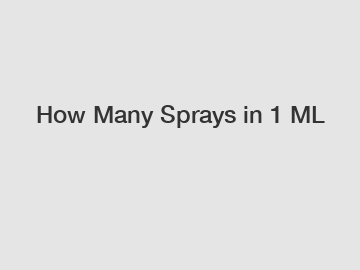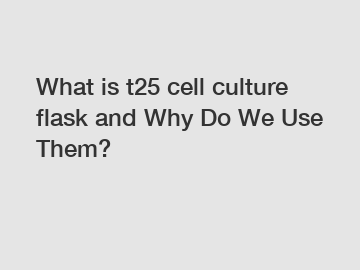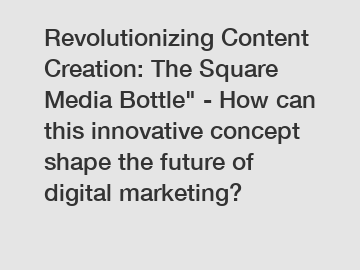Glass bottles play a critical role in pharmaceutical packaging, ensuring the safety and integrity of medicinal products. However, with various options available in the market, choosing the right glass bottles can be daunting. This article offers expert insights and guidance to help you make informed decisions when selecting glass bottles for pharmaceutical use.

Glass bottles serve as the primary packaging solution for pharmaceutical products due to their inert nature, which ensures that the contents remain unaffected by external factors. The quality of glass bottles directly impacts the efficacy and safety of pharmaceutical products, making it imperative to choose bottles that meet the highest industry standards.
The Role of Glass Bottles in Pharmaceutical Packaging
Glass bottles serve multiple purposes in pharmaceutical packaging, including protecting the product from contamination, maintaining product stability, and extending shelf life. Moreover, glass is impermeable to gases and liquids, providing an effective barrier against moisture, oxygen, and other potentially harmful elements.
Factors to Consider When Selecting Glass Bottles for Pharmaceutical Use
Material Composition: Glass bottles for pharmaceutical use are typically made from borosilicate or soda-lime glass. Borosilicate glass offers superior resistance to thermal shock and chemical corrosion, making it ideal for storing sensitive pharmaceutical formulations.
Size and Capacity: Consider the volume of your pharmaceutical product and choose glass bottles with appropriate size and capacity to accommodate the contents without leaving excess headspace, which can lead to oxidation or degradation.
Closure Mechanism: The type of closure used with glass bottles is crucial for maintaining product integrity. Choose closures that provide a tight seal and prevent leakage or tampering.
Transparency and Clarity: Opt for glass bottles with high transparency and clarity to allow for easy visual inspection of the contents. This is particularly important for pharmaceutical products that require accurate dosage measurement.
Compatibility with Sterilization Methods: Ensure that the glass bottles are compatible with sterilization methods such as autoclaving or gamma irradiation, which are commonly used in pharmaceutical manufacturing.
Regulatory Compliance: Select glass bottles that comply with relevant regulatory standards and guidelines, such as those set forth by the FDA (Food and Drug Administration) or EU Pharmacopeia, to ensure product safety and legality.
Cost Considerations: While quality should be the primary consideration, it's also essential to evaluate the cost-effectiveness of glass bottles, taking into account factors such as durability, reusability, and overall lifecycle costs.
Explore more:Unleash Your Strength with T25 Plate Workouts10 Best Tips for Buying 1 oz Black Glass Dropper Bottles: Are They Worth the Investment?What is the area of the T25 cell culture flask?Ultimate Guide: Glass Containers with Wood Lids - Why They're a Must-HaveUltimate Guide to Must-Have Research SuppliesUltimate Guide to Kush Dropper Bottles: Top FAQs AnsweredEverything You Need to Know About Kush Dropper BottlesExpert Recommendations for Glass Bottles for Pharmaceutical Applications
When choosing glass bottles for pharmaceutical use, it's advisable to consult with packaging experts or suppliers who specialize in pharmaceutical packaging solutions. They can provide valuable insights and recommendations based on your specific requirements and ensure that you select the most suitable glass bottles for your pharmaceutical products.
Advantages of Glass Bottles for Pharmaceutical Packaging
Glass bottles offer numerous advantages over alternative packaging materials, making them the preferred choice for pharmaceutical packaging applications.
Superior Chemical Inertness
Glass is chemically inert, meaning it does not react with pharmaceutical formulations or alter the composition of the contents. This ensures the stability and efficacy of the product throughout its shelf life.
Excellent Barrier Properties
Glass provides an excellent barrier against moisture, oxygen, light, and other environmental factors that can degrade pharmaceutical products. This helps to maintain product quality and extend shelf life.
Eco-Friendly and Recyclable
Glass bottles are environmentally friendly and recyclable, making them a sustainable packaging option for pharmaceutical companies committed to reducing their carbon footprint and minimizing waste.
Versatility and Customization Options
Glass bottles offer versatility in design and customization, allowing pharmaceutical companies to create unique packaging solutions that enhance brand recognition and appeal to consumers.
Safety and Security
Glass bottles provide a safe and secure packaging solution for pharmaceutical products, offering protection against contamination, tampering, and counterfeit products.
Long-Term Viability
Glass bottles have a long history of use in pharmaceutical packaging and have stood the test of time due to their durability, reliability, and proven performance.
Conclusion
Choosing the right Glass Packaging For Pharmaceuticals is essential for ensuring product safety, integrity, and regulatory compliance. By considering factors such as material composition, size, closure mechanism, and regulatory requirements, pharmaceutical companies can select glass bottles that meet their specific needs and contribute to the overall success of their products.
Explore more:Mastering the Art of Using Serological PipettesRevolutionizing Coffee Storage: Are Flat Bottom Bags?7 Creative Uses for Your Erlenmeyer FlaskHow Child Resistant Glass Jars Ensure SafetyUltimate Guide: Using Flask in Biology ExperimentsEverything You Need To Know To Find The Best Rectangular perfume glass bottleWhy Are Marijuana Packaging Bags So Popular?












Comments
Please Join Us to post.
0